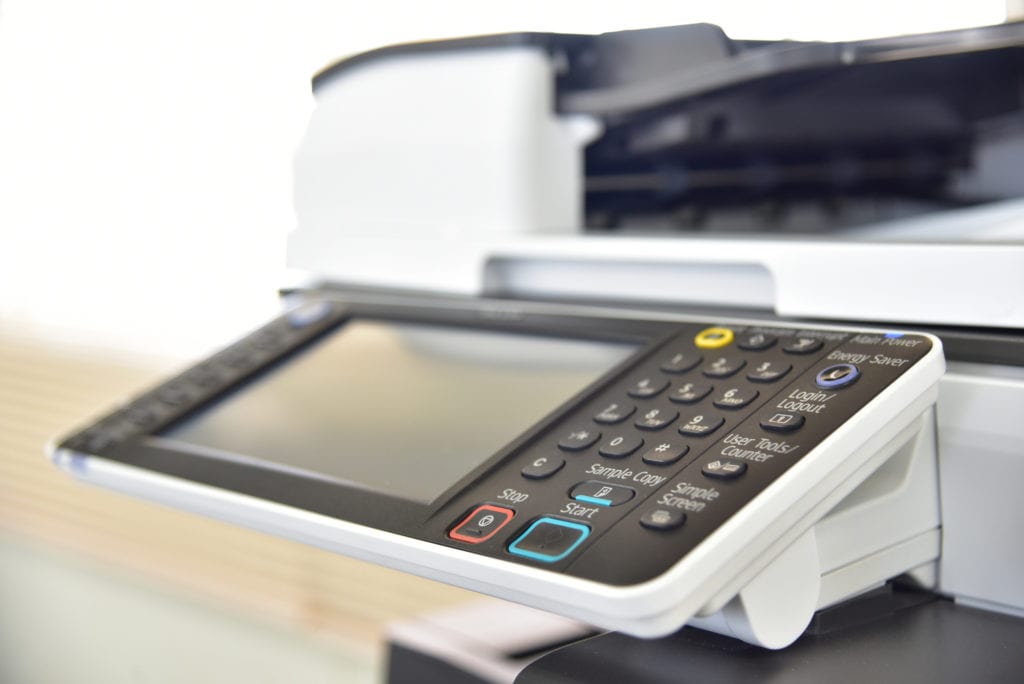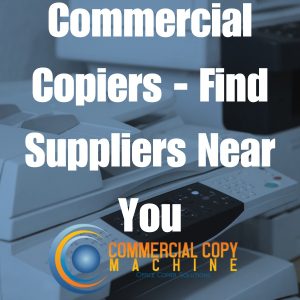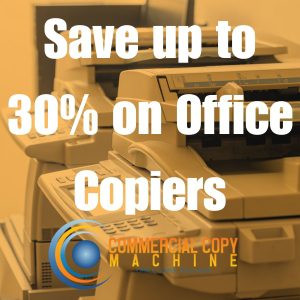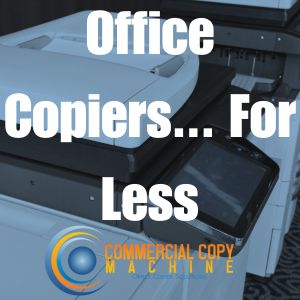
Is Your Office Really Paperless? Why Copiers Are Still Essential in the Digital Age
In today’s digital-first business environment, many companies are striving to go paperless in an effort to streamline operations, reduce waste, and embrace modern technology. However, despite the growing reliance on digital tools, the need for physical documents remains in many industries. Office copiers, once viewed as relics of the past, are still essential in bridging the gap between physical paperwork and digital workflows. In fact, copiers have evolved significantly, offering features that make them indispensable even in this digital age. This blog explores why office copiers are still necessary, how they enhance productivity, and the types of copiers best suited for today’s hybrid work environments.
The Myth of the Paperless Office
The idea of a paperless office has been around for decades, first introduced with the advent of computers and email in the 1980s. The concept was simple: computers and digital storage would replace paper, leading to increased efficiency, reduced waste, and lower costs.
While the use of paper in offices has decreased significantly due to the rise of digital tools, reports show that we’re still far from eliminating paper entirely. The average office worker still uses around 10,000 sheets of paper per year. In sectors like law, healthcare, and education, paper documents remain integral to daily operations, even as digital tools become more prevalent.
The truth is, while businesses are making strides toward reducing paper, most offices still rely on a combination of physical and digital documents. Contracts, legal agreements, medical records, receipts, and forms are just a few examples of documents that still often need to be printed, signed, and filed in physical form. For many businesses, transitioning to a completely paperless environment isn’t just impractical—it can disrupt workflows and introduce new inefficiencies.

Why Copiers Are Still Essential in a Digital World
In a world where email, cloud storage, and digital collaboration tools have become the norm, it might seem counterintuitive to say that copiers are still essential. However, office copiers have evolved significantly to meet the needs of modern businesses. They are no longer just machines for duplicating documents; they are now multifunctional devices that integrate with digital workflows to manage both physical and digital documents seamlessly.
Here’s why copiers remain crucial in the digital age:
1. The Need for Physical Documents
Despite the growing trend toward digitalization, there are still many situations where physical documents are required. Contracts, legal documents, government forms, and certain business transactions often require physical signatures or need to be provided in hard copy.
Many industries, such as real estate, healthcare, and finance, are still heavily reliant on paper for regulatory, legal, or compliance reasons. For instance, HIPAA regulations in healthcare often require that certain medical records be maintained in physical form, even if digital copies are also available. In these cases, copiers are essential for producing high-quality physical copies that meet legal standards.
2. Hybrid Work Environments
The rise of remote and hybrid work environments has increased the demand for both digital and physical documentation. Employees may work from home but still need access to printed materials, especially when collaborating with teams in different locations. In these cases, copiers serve as the link between digital documents stored in the cloud and the physical documents that may be needed for meetings, presentations, or legal purposes.
Many modern copiers are equipped with cloud integration, allowing remote employees to send documents to the office copier from anywhere and pick them up later. This enables remote workers to bridge the gap between digital and physical workflows seamlessly.
3. Streamlining Document Management
Modern copiers are no longer just for making copies. They have evolved into multifunctional devices (MFPs) that can print, scan, fax, and copy—all in one machine. This makes them indispensable for businesses that handle a large volume of documents daily. MFPs allow for easy scanning of physical documents into digital formats, so they can be stored electronically or shared via email, cloud storage, or document management systems.
With advanced scanning features, businesses can convert paper documents into searchable PDFs or other file formats, making it easier to organize and retrieve information. This can be especially useful in industries like law and accounting, where managing large amounts of documentation is a daily task. Copiers equipped with these features help businesses maintain productivity by simplifying the transition between paper and digital formats.

4. Security and Compliance
For businesses handling sensitive or confidential information, security is a top priority. Digital documents can be encrypted and stored securely in the cloud, but many industries still require physical copies of important documents. Copiers play a key role in ensuring that businesses can securely manage their physical and digital documents.
Many modern office copiers come with built-in security features, such as user authentication, encrypted printing, and secure storage, to ensure that sensitive information is protected during the copying and printing process. These features are particularly valuable in sectors like healthcare and finance, where maintaining compliance with data protection regulations such as HIPAA or GDPR is essential.
By providing secure, controlled access to document duplication and printing, copiers help businesses meet their compliance requirements while managing both digital and physical data securely.
5. Productivity and Flexibility
While digital tools like cloud storage, collaboration software, and email have made many tasks faster and more efficient, the reality is that paper remains an integral part of many workflows. Instead of viewing copiers as relics of a pre-digital age, businesses should recognize that copiers provide a vital complement to digital workflows.
For example, during meetings or presentations, physical copies of documents are often more practical for review and discussion. Many people find it easier to focus on physical documents rather than scrolling through screens. By maintaining access to a high-quality copier, businesses can print materials on demand, ensuring they have the flexibility to adapt to the situation, whether it’s physical or digital.
Moreover, copiers that integrate with cloud services allow for efficient digital document sharing and retrieval while maintaining the convenience of producing hard copies when needed. This hybrid approach ensures businesses can operate flexibly and efficiently without sacrificing the advantages of digitalization or the practical need for paper documents.

Types of Office Copiers That Work Well in the Digital Age
Now that we’ve established why copiers remain essential in a digital world, the next step is choosing the right type of copier for your office. Modern copiers are designed to meet the diverse needs of today’s businesses, offering a range of features that make them perfect for both small and large organizations.
Multifunctional Printers (MFPs)
Multifunctional printers (MFPs) are one of the most popular copier choices in the digital age. These devices combine printing, scanning, copying, and faxing into a single unit, making them a versatile solution for businesses of all sizes. MFPs often come with advanced features such as:
- Cloud Integration: This allows users to scan documents directly to cloud storage services like Google Drive, Dropbox, or Microsoft OneDrive, as well as print documents from the cloud remotely.
- Wireless and Mobile Printing: Employees can print documents from their smartphones, tablets, or laptops without needing to connect to a physical computer or network. This is particularly useful in hybrid work environments.
- Advanced Scanning Capabilities: Many MFPs can scan documents into searchable PDFs, making it easier to store, organize, and retrieve documents digitally.
- User Authentication and Secure Printing: To protect sensitive documents, some MFPs offer security features such as PIN codes or swipe cards, ensuring that only authorized users can access certain print jobs or scanned documents.
Best Suited For:
- Businesses looking for a comprehensive, all-in-one solution to manage both digital and physical documents.
- Offices that frequently print, scan, and copy documents and want to streamline processes with a single device.
High-Speed Digital Copiers
For businesses with high-volume printing and copying needs, high-speed digital copiers are a powerful solution. These copiers are designed to handle large print jobs efficiently while maintaining high-quality output. They can print hundreds of pages per minute, making them ideal for industries like law firms, financial institutions, or educational facilities that rely on fast, accurate document production.
Features such as automated finishing options (e.g., stapling, hole punching, booklet creation) can further streamline document handling, allowing employees to focus on more important tasks while the copier handles the entire production process.
Best Suited For:
- Large businesses or organizations that handle high volumes of printed materials.
- Industries that need high-speed, high-quality output for documents such as contracts, reports, or booklets.

Compact Desktop Copiers
For smaller businesses or offices with limited space, compact desktop copiers provide all the essential features of larger machines but in a more space-saving form. These devices are perfect for businesses that don’t need high-volume output but still want access to scanning, copying, and printing capabilities.
Modern desktop copiers often come with wireless connectivity and cloud integration, allowing users to print or scan documents from anywhere, just like larger MFPs.
Best Suited For:
- Small businesses or home offices with limited space and modest document handling needs.
- Teams that want the convenience of a multifunctional copier without the footprint of a larger machine.
Eco-Friendly Copiers
For businesses looking to reduce their environmental impact, eco-friendly copiers offer energy-efficient designs and the use of recyclable materials. These devices often feature energy-saving modes, reduced toner consumption, and support for recycled paper. Many eco-friendly copiers are certified by organizations like Energy Star, ensuring they meet strict environmental standards.
Additionally, some manufacturers offer programs that allow businesses to recycle old toner cartridges or copiers, further reducing waste.
Best Suited For:
- Companies with a focus on sustainability and reducing their carbon footprint.
- Offices looking to reduce energy consumption and waste while maintaining productivity.
In the digital age, the idea of a completely paperless office is appealing but often unrealistic. Businesses continue to rely on physical documents for legal, regulatory, and practical reasons, and office copiers remain a critical tool for managing both paper and digital workflows.
Modern copiers have evolved to meet the needs of today’s businesses by integrating digital capabilities, offering security features, and enhancing productivity. Whether through multifunctional printers, high-speed copiers, or eco-friendly machines, copiers provide the flexibility, security, and efficiency needed to support both paper and digital operations.
